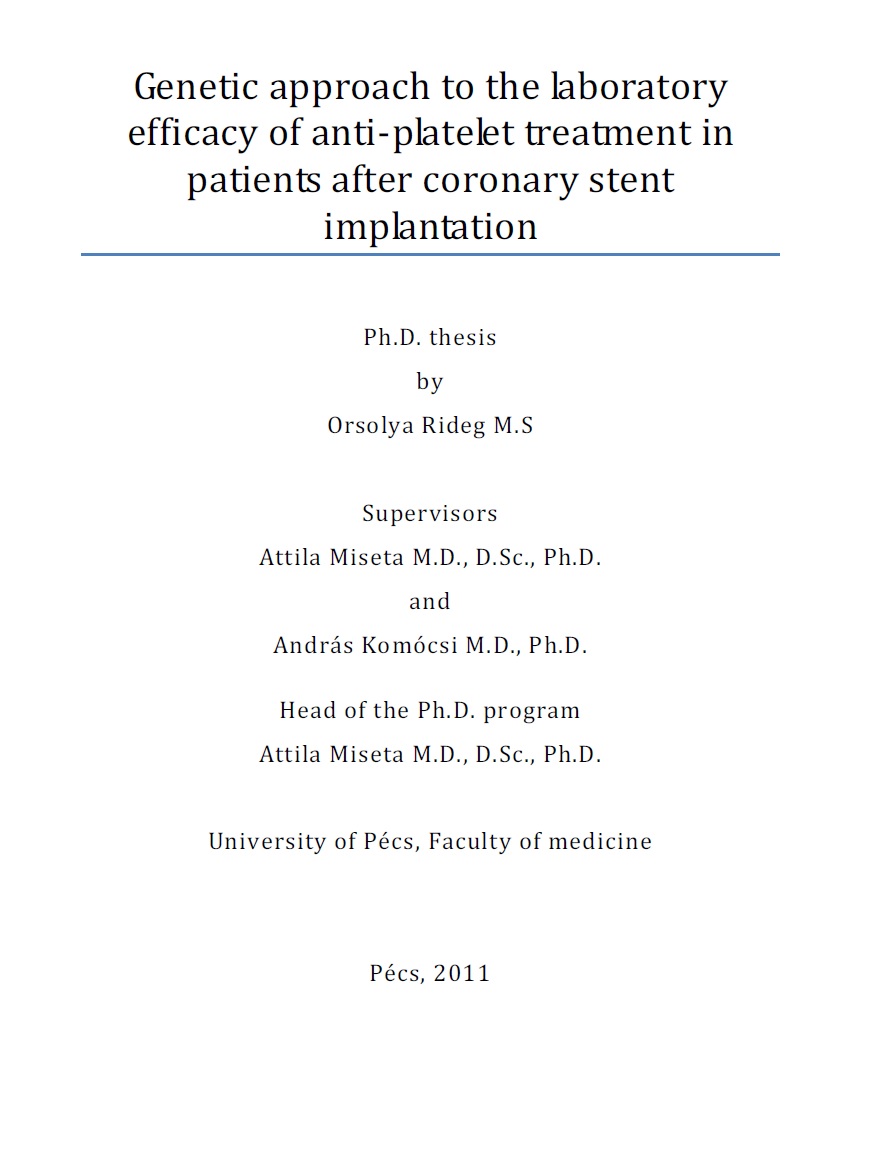Genetic approach to the laboratory efficacy of anti-platelet treatment in patients after coronary stent implantation
Abstract
Coronary artery disease (CAD) is known to be a very heterogeneous disease of
multifactorial origin affecting millions world-wide and being the top leading
cause of death among the middle-aged population.
The development of percutaneous coronary intervention (PCI) has
revolutionized the treatment of ischaemic heart disease. However, despite the
efforts some short and longer term complication has been realized; acute stent
thrombosis (ST) and instent restenosis (ISR), both resulting in target-vessel
failure after PCI, still occur.
Significant interindividual differences in response to anti-platelet therapy have
recently been recognized with supposed environmental, clinical,
pharmacokinetic and genetic background. While lack of standardization in
platelet function assays and paucity of well defined cut off values represent
further difficulties of the subject. The circumstances that individuals may have
different needs for anti-platelet action as well as different risk for bleeding, point
toward the need for an individualized therapeutic regime.

